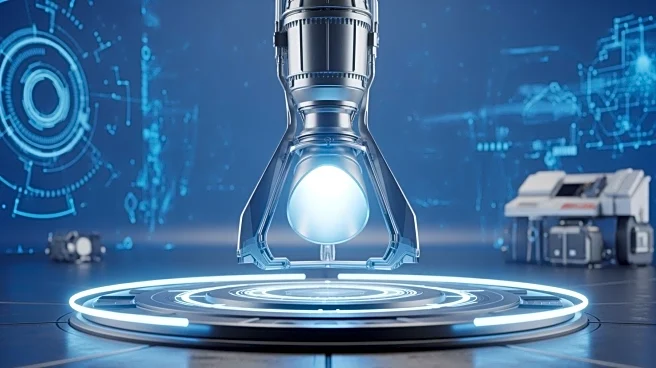What's Happening?
Venus Aerospace, a company specializing in rocket engine propulsion technologies, has received investment from Lockheed Martin's venture capital arm. This funding aims to scale the production of Venus's rotating detonation rocket engine, which is designed
to be reusable and throttleable, potentially reducing launch costs and increasing mission flexibility. The investment was announced at the Axios Future of Defense Summit in Washington, D.C. Venus Aerospace, founded in 2020 by Sassie Duggleby and Andrew Duggleby, conducted its first high-thrust test flight in May at Spaceport America, New Mexico. The test involved supersonic explosions to create thrust, a technique intended to propel hypersonic systems in the future.
Why It's Important?
The investment from Lockheed Martin Ventures underscores the strategic importance of next-generation propulsion technologies in defense and space sectors. As nations vie for leadership in these areas, advancements in propulsion systems could redefine global power dynamics. Venus Aerospace's technology promises to enhance the efficiency and flexibility of space missions, potentially lowering costs and expanding capabilities. This development could benefit defense contractors, space exploration entities, and commercial aviation industries by providing more robust and adaptable propulsion solutions.
What's Next?
With Lockheed Martin's backing, Venus Aerospace is expected to further develop and integrate its propulsion technology into critical systems. This could lead to increased collaboration with defense and space agencies, as well as potential partnerships with commercial aviation companies. The focus will likely be on scaling production capabilities and refining the technology for broader applications in hypersonic systems.
Beyond the Headlines
The investment highlights the growing interest in reusable and efficient propulsion technologies, which could have long-term implications for sustainable space exploration and defense strategies. As these technologies mature, they may also influence regulatory frameworks and international agreements related to space and defense.

















